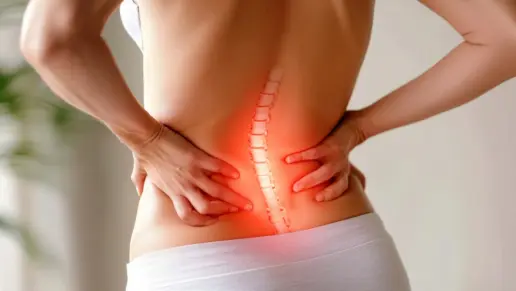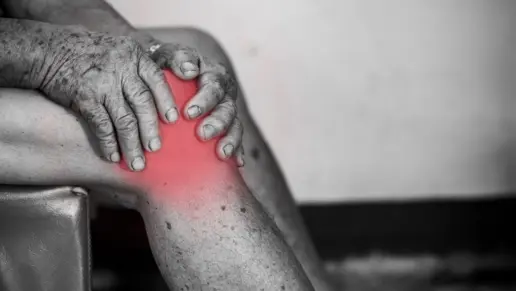As the saying goes, too much of a good thing can become a bad thing. That describes hydrocodone in a nutshell.
Hydrocodone is an opioid and, like most medicines, it has its proper place. It can be effective for pain relief but it does have its risks, especially when you take it for long periods or in high doses.
So how do you get the relief you need while minimizing the risk of addiction? It starts with understanding how hydrocodone works so you can help you make informed choices about your health.
What Is Hydrocodone?
Hydrocodone is an opioid that doctors usually prescribe for pain relief. Specifically they usually offer it to people who have moderate to severe pain.
But there’s a hitch. Hydrocodone is a drug that’s often misused.
In fact, the Drug Enforcement Administration ranks it as the second most prevalent substance found in opioid medication investigations. Because of its high risk of addiction it’s classified as a Schedule II controlled substance in the US.
How Hydrocodone Affects the Body
Hydrocodone works by affecting your central nervous system as a depressant. It binds to opioid receptors in your brain and this reduces your ability to feel pain.
In the process, hydrocodone has side effects too though. It slows down breathing and can cause digestive issues. It can also give you euphoria which is an intense sense of pleasure.
There are many other side effects that come along with hydrocodone too. It can lower your blood pressure and slow your heart rate while making you short of breath.
You can have swelling in your extremities as well as a headache and anxiety. You might also feel fatigued and dizzy. In some cases it can cause tinnitus or a rash too.
If you’re using hydrocodone regularly or for a long time then you could develop physical dependence or even an addiction to it.
But the most serious risk of hydrocodone happens when you take it with other substances like alcohol, benzodiazepines or other depressants. This can slow down your breath too much and put you at risk for an overdose or death.
Types of Hydrocodone
In some cases, a doctor will prescribe straightforward hydrocodone. Or you might be prescribed a medication that combines hydrocodone and acetaminophen.
These drugs are branded under the names Lortab, Norco, Vicodin or Lorcet. There are also medications that combine hydrocodone with other prescription medications to treat symptoms like a cough, cold or allergies.
The most common combination you’ll probably see is hydrocodone with acetaminophen. Acetaminophen is Tylenol which is a non-opioid pain reliever.
Nearby Opioid Addiction Rehab Centers
Common Questions About Hydrocodone
Is Hydrocodone an Opioid?
Yes, hydrocodone is an opioid. It’s labeled this way because it interacts with the opioid receptors in the brain.
Is Hydrocodone Addictive?
The short answer is yes, hydrocodone is addictive. Research studies show that individuals can develop opioid physical dependence fairly quickly.
According to the CDC’s MMWR Morbidity and Mortality Weekly Report some studies show that each day a person took the medication, their risk of long-term opioid addiction increased. But everyone will respond to hydrocodone differently so this doesn’t mean that you’ll become addicted if you take it.
What’s the Difference Between Hydrocodone vs. Oxycodone?
Both hydrocodone and oxycodone are prescription opioids. They’re both prescribed for pain and they both have similar risks for addiction, dependence and withdrawal.
But oxycodone is more likely to be prescribed for more severe pain. Plus a study in Drug and alcohol dependence found that oxycodone has a higher risk of overdose but hydrocodone is more likely to lead to chronic use.
How Long Does Hydrocodone Stay in Your System?
There’s not a guaranteed answer to this because it varies from person to person. It depends on how often you take hydrocodone and how much you take as well as your overall health and how your body metabolizes the drug, because everyone can be different.
While the research varies, hydrocodone is considered to be a short-acting drug. This means that you’ll feel the medication’s effects quickly but that it will also leave your body quickly.
How Long Does Hydrocodone Stay in Urine?
Studies vary but hydrocodone typically stays in urine for an average of two days. It can appear in your urine within two hours of taking the drug. Keep in mind that each person’s body metabolizes drugs differently so everyone may be different.
Does Hydrocodone Make You Tired?
Yes hydrocodone can make you feel drowsy. That side effect is even stronger if you combine hydrocodone with other substances that cause drowsiness. That combination can slow down your respiratory system to a dangerous level and it can even be fatal.
Can Sudden Hydrocodone Withdrawal Cause Arrhythmia?
If your body becomes dependent on hydrocodone, yes, heart arrhythmia is one of the common but potential withdrawal symptoms. Arrhythmia is an irregular heartbeat.
There’s a cardiac risk during hydrocodone withdrawal so it’s recommended that medical professionals monitor your heart while you detox from hydrocodone.
What Is MAT?
MAT stands for medication assisted treatment and it’s a common treatment approach for opioid addiction. It combines therapy with specialized medications that lower your opioid cravings and withdrawal symptoms.
The typical medications used in MAT are methadone and buprenorphine. These drugs not only help lessen the hydrocodone withdrawal symptoms but they also block the “feel good” receptors associated with hydrocodone misuse. Naltrexone is another MAT option that decreases opioid cravings. This makes you less likely to relapse.
While you receive these medications to help with your physical dependence on opioids, you’ll also get therapy to address the mental and emotional aspects of addiction.
Behavioral therapy like cognitive behavioral therapy (CBT) can help address and reframe thoughts patterns in a healthier way. Therapy can also help manage stress and triggers during your recovery and you might also have family therapy or couples therapy to strengthen your recovery support system.
What to Expect from Hydrocodone Withdrawal
When you have been taking hydrocodone and you suddenly stop taking it, you may have withdrawal symptoms. The longer you have been taking hydrocodone the more likely you’ll be to have these symptoms.
Timelines may be different for everyone but there are certain patterns that are typical in withdrawal.
In your first 24 hours of withdrawal, you’ll notice anxiety and insomnia. You can have muscle aches and sweating too.
Your symptoms will peak on days two and three. During this time you’ll have nausea and potentially vomiting. You can also have chills and intense cravings for hydrocodone.
During days 4 to 7, you’ll still have some lingering discomfort but your symptoms will be resolving. It’s especially common to feel fatigue and depression during this time.
After a week of withdrawal, you might have some psychological symptoms and cravings to a lesser extent. This is called post-acute withdrawal symptom of PAWS and it can last for weeks or months. PAWS symptoms tend to be a factor in relapse so treatment and support are crucial throughout your recovery.
How Can You Treat Hydrocodone Addiction?
An opioid addiction can make you feel hopeless but rest assured that there are treatments that can help you recover. Let’s explore the treatments you might have during your recovery journey.
Detox
Detox is just another name for withdrawal management. For hydrocodone addiction you’ll probably have medical detox. In this treatment a medical professional will monitor your health during your detox to make sure you stay safe and healthy. This is often the first step in recovery. It could be inpatient or outpatient depending on your needs.
Inpatient Treatment
Residential rehab is a comprehensive way to treat addiction when you’re early in your recovery and at risk for a relapse. They provide 24 hour support as well as intensive therapy and structured recovery plans. These programs often last for 30 days to 90 days but the length varies.
Medication Assisted Treatment
Medication assisted treatment (MAT) can help manage your withdrawal symptoms and reduce cravings. It’s a way to help you stay sober while your therapist treats your addiction so it benefits your long term recovery.
Outpatient Treatment
When you’re in outpatient treatment you’ll attend therapy and receive support while still living at home. This lets you continue with your career, caring for your family and other daily responsibilities.
Support Groups and Aftercare
Mutual support groups like Narcotics Anonymous or NA can help you maintain your recovery in the long run. Depending on your needs your ongoing support could include therapy and MAT as well.
There’s Hope for Hydrocodone Addiction
Hydrocodone can be a huge help for pain management but stopping hydrocodone may not be as simple as you expect. If you or someone you love is struggling with hydrocodone addiction, recovery is possible with the help of addiction specialists in your area.
To explore treatment programs, support services, and recovery resources across the country, you can also learn more about rehab options as you take your next step toward healing.
Addiction Centers That Treat Opioid Addiction
Finding facilities near you…




